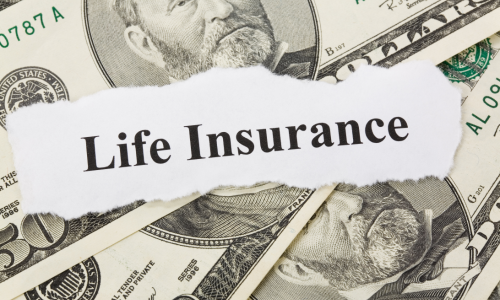The Pros and Cons of Cashing Out Your Life Insurance: Should You Do It

The Cons of Cashing Out Your Life Insurance
Loss of Life Insurance Coverage
When you cash out your life insurance, you forfeit the death benefit, which can leave your loved ones without financial protection should the unexpected happen.
- You lose the death benefit that would provide for beneficiaries: The primary purpose of life insurance is to provide a financial cushion for those who depend on you after your death. Cashing out removes that benefit.
- Potential impact on loved ones: If you pass away after cashing out the policy, your family may face significant financial strain, as they will no longer receive the payout.
Surrender Charges and Penalties
Cashing out a policy often comes with surrender charges or other fees that can reduce the amount you receive.
- The cash value may be reduced: If you surrender the policy early, you may face steep surrender fees, especially if the policy hasn’t had time to build substantial cash value.
- Administrative charges: These are additional fees that the insurance company may charge to process the surrender, which can further reduce your payout.
Tax Implications
When you cash out a life insurance policy, you could face tax consequences, especially if the cash value exceeds the total premiums you’ve paid.
- Cashing out could trigger taxes: Any gain on the cash value (the amount exceeding what you’ve paid in premiums) may be subject to income tax.
- Potential tax burden: You could end up with a tax bill based on the gains from the policy, reducing the amount of cash you receive from the surrender.
Missed Opportunity for Future Growth
By cashing out your policy, you stop the potential growth of the cash value, which could have continued to grow tax-deferred, providing more financial security down the road.
- The policy’s cash value could continue to grow: If you leave the policy in force, the cash value may continue to increase over time, providing additional financial benefits in the future.
Potential Impact on Retirement Planning
For those who have included life insurance in their retirement strategy (e.g., as a tax-deferred savings vehicle), surrendering the policy could disrupt these long-term plans.
- For those using life insurance as part of a larger financial strategy: Cashing out may upset your broader financial strategy, especially if you’ve relied on the policy’s cash value to help fund retirement or other long-term financial goals.
Alternative Options to Cashing Out
Instead of cashing out your life insurance policy, there are several alternatives that can provide access to the cash value without completely surrendering the policy.
Conclusion
In this article, we’ve explored what it means to cash out your life insurance policy, highlighting both the pros and cons of this decision. Cashing out can provide immediate access to cash, help you avoid ongoing premium payments, and eliminate a policy that no longer fits your financial goals. However, it also comes with significant downsides, such as losing your life insurance coverage, facing penalties or fees, and potentially triggering tax consequences. Additionally, by surrendering the policy, you may miss out on future growth and the long-term benefits of keeping the policy in force.
When deciding whether or not to cash out your life insurance, it’s essential to weigh these pros and cons in light of your current financial situation and long-term goals. For some, cashing out might make sense if the policy is no longer necessary or affordable. For others, it may be more beneficial to explore alternatives, such as taking a loan against the policy or converting it to a paid-up policy, to retain coverage while accessing its value.
Ultimately, making a decision about life insurance requires careful consideration of your personal circumstances. We strongly recommend consulting with a financial advisor before taking action. A professional can help you navigate the complexities of life insurance, weigh the benefits against the drawbacks, and develop a strategy that aligns with your overall financial plan. This way, you can make an informed decision that best supports your future.


